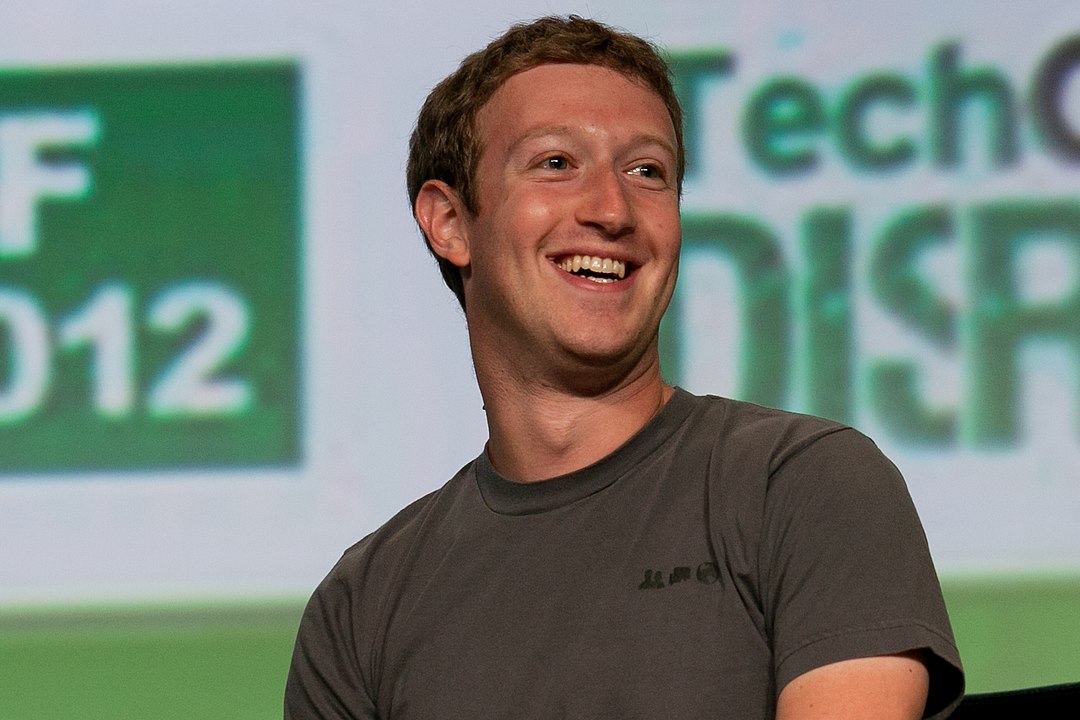Meta CEO Mark Zuckerberg Cleared of Personal Liability in Social Media Addiction Lawsuits Targeting Kids
In a landmark legal decision, Meta CEO Mark Zuckerberg has been cleared of personal liability in over two dozen lawsuits that accuse the social media giant's platforms, Facebook and Instagram, of fostering addiction among children and teenagers. The ruling by U.S. District Judge Yvonne Gonzalez Rogers, issued in Oakland, California, comes as social media companies like Meta face heightened scrutiny worldwide over their influence on mental health, especially among young users. This decision marks a significant moment in the ongoing debate over corporate versus personal accountability within Big Tech and raises broader questions about the responsibility of social media platforms in protecting young users.
The Lawsuits Against Meta and Zuckerberg’s Role
The cases in question are part of a much larger wave of lawsuits filed against Meta by parents, school districts, and public interest groups. The plaintiffs argue that Meta's platforms have knowingly contributed to social media addiction in minors, exacerbating issues such as anxiety, depression, and low self-esteem. By promoting features that encourage prolonged screen time and interaction, these lawsuits allege, Facebook and Instagram have created a potentially harmful environment for young users.
In their filings, the plaintiffs claimed that Zuckerberg, as the "guiding spirit" behind Meta, directed the company to prioritize user engagement—and therefore profit—over the mental health and safety of young users. They argued that Zuckerberg's leadership style and personal involvement in shaping Meta’s direction implied a level of direct accountability for the impacts of the company’s platforms on children.
However, Judge Gonzalez Rogers ruled that there was insufficient evidence to hold Zuckerberg personally responsible. She noted that while the plaintiffs alleged that Zuckerberg had general control over Meta’s business activities, they did not provide specific details linking his direct actions to the alleged harm experienced by young users. "Control of corporate activity alone is insufficient to establish personal liability," she stated in her ruling. This judgment does not affect ongoing claims against Meta as a corporation, meaning the cases will proceed with Meta as the defendant, but not Zuckerberg personally.
Rising Concerns Over Social Media’s Impact on Young Users
The lawsuits against Meta are part of a broader trend of litigation against social media companies that target popular platforms frequented by young users, including Alphabet’s YouTube, ByteDance’s TikTok, and Snap Inc.’s Snapchat. The plaintiffs allege that these companies have prioritized growth and profit over the well-being of their users, with features designed to keep users engaged for as long as possible. The focus of these lawsuits is on the algorithms that drive content recommendations and notifications, which critics argue have been engineered to maximize time spent on the platforms, often at the expense of users’ mental health.
Across the United States, lawmakers and parents are increasingly concerned about social media’s effects on children and teenagers. Research has linked heavy social media use to an increased risk of mental health issues, including anxiety, depression, and even suicidal ideation. Studies have found that features such as "likes," notifications, and infinite scrolling can create dopamine-driven behaviors, making social media platforms highly addictive, especially for younger users.
School districts across the country have filed suits against Meta, arguing that the mental health issues associated with social media use, such as anxiety and depression, have increased absenteeism and other issues that interfere with academic performance. Health experts, parents, and educators worry that social media use disrupts the natural development of social skills and self-esteem among teens, with some studies showing that teenagers who spend extended hours on social media report higher rates of loneliness and social isolation.
Big Tech’s Legal Battles Over Youth Safety
In addition to Meta, other social media giants face mounting legal battles over the alleged harm caused to minors by their platforms. Earlier this year, dozens of U.S. state attorneys general launched investigations into the impact of social media use on youth, joining forces to address concerns over anxiety, insomnia, self-esteem issues, and other challenges facing young users. The attorneys general argue that companies like Meta have a responsibility to limit harmful content exposure, reduce addictive features, and prioritize safety features that can mitigate potential risks to mental health.
This wave of lawsuits highlights a broader shift in the legal landscape, as regulatory bodies and governments worldwide increasingly push for accountability and transparency from Big Tech. Many believe these companies should take greater responsibility for how their platforms impact society, especially young people. This sentiment has grown following revelations from whistleblowers, such as former Facebook employee Frances Haugen, who disclosed internal documents suggesting that Meta was aware of the harmful effects of Instagram on teenage users but continued to focus on engagement over safety.
The plaintiffs in the ongoing Meta cases represent 13 U.S. states, including Arizona, Colorado, Connecticut, Georgia, Maryland, New York, North Carolina, Ohio, Pennsylvania, South Carolina, Texas, Virginia, and Wisconsin. These lawsuits argue that Meta has not only failed to protect young users but has actively ignored warnings about the potential harm associated with its platforms, leaving parents and schools to manage the fallout.
Zuckerberg’s Role and Meta’s Response
Mark Zuckerberg has long been seen as the driving force behind Meta, previously known as Facebook. His influence over the company’s direction is well-documented, and his leadership style has often been described as hands-on, particularly when it comes to product development and user experience. However, as Meta has faced increasing scrutiny, Zuckerberg has attempted to position himself as a proponent of digital safety and transparency.
In recent years, Meta has pledged to invest heavily in content moderation, artificial intelligence, and mental health initiatives aimed at reducing harm on its platforms. The company has introduced several features aimed at helping users manage their time online, including screen time trackers, notification controls, and parental supervision tools. Nonetheless, critics argue that these measures are insufficient, as the core business model remains dependent on maximizing user engagement.
Previn Warren, a partner at Motley Rice who represents the plaintiffs, expressed disappointment with the ruling, indicating that the legal team would continue gathering evidence to prove that “Big Tech has knowingly prioritized profits over the safety of our children.” Warren and his team are preparing to advance their arguments against Meta as a corporation, even though Zuckerberg himself is now shielded from personal liability.
Related: Meta's Stellar Earnings Report: Strong Revenue Boost Overshadowed by User Growth Concerns
Related: Meta Triumphs in Major Shareholder Lawsuit
The Future of Social Media Regulation
As the cases against Meta proceed, industry experts suggest that legal and regulatory bodies may need to consider new approaches to address the impact of social media on youth mental health. The U.S. government, along with other countries, has been actively exploring legislation to place stricter limits on social media platforms. Proposals include mandatory age verification processes, limits on certain types of engagement-based algorithms, and increased transparency around platform practices and their psychological impacts on users.
In the European Union, for example, the Digital Services Act (DSA) introduces stricter rules for social media companies operating in Europe, requiring them to assess and mitigate risks associated with their platforms. These regulations aim to set new standards for content moderation, user data privacy, and online safety, especially for younger users.
Related: South Korea Fines Meta $15 Million for Illegal Data Collection on Facebook Users
Meta’s Future and Public Perception
The legal battles over social media addiction and youth mental health represent a significant challenge for Meta and its leadership. Public perception of Zuckerberg and Meta is increasingly critical, with many users, particularly parents, expressing frustration over the perceived lack of accountability for the well-being of young users. As Meta faces legal scrutiny and potential financial repercussions, it may need to reevaluate its priorities to ensure it addresses public concerns and takes meaningful action to safeguard its younger user base.
For now, Meta, Google, ByteDance, and Snap Inc. are all navigating an era where their influence over young people is under intense scrutiny, and the costs of operating in this high-stakes environment could reshape the business models that have driven the social media industry to date. Zuckerberg’s exemption from personal liability marks a temporary reprieve for Meta's CEO, but the company itself remains deeply entangled in a legal and moral debate over the role of social media in the lives of young users. The outcome of these lawsuits could set a precedent with far-reaching implications, not just for Meta, but for the social media industry as a whole.









